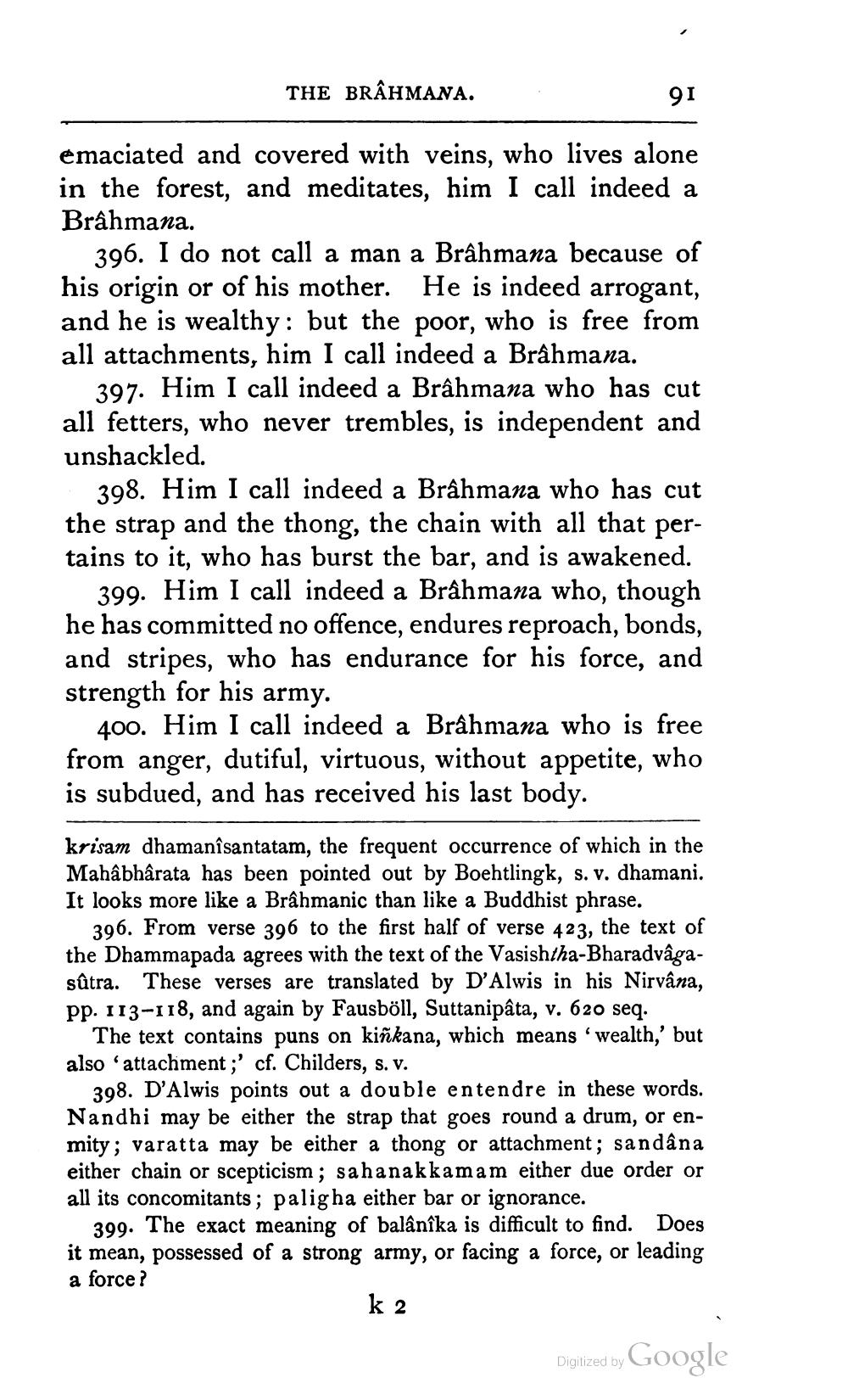________________
THE BRAHMANA.
emaciated and covered with veins, who lives alone in the forest, and meditates, him I call indeed a Brâhmana.
396. I do not call a man a Brâhmana because of his origin or of his mother. He is indeed arrogant, and he is wealthy: but the poor, who is free from all attachments, him I call indeed a Brâhmana.
397. Him I call indeed a Brâhmana who has cut all fetters, who never trembles, is independent and unshackled.
398. Him I call indeed a Brâhmana who has cut the strap and the thong, the chain with all that pertains to it, who has burst the bar, and is awakened.
399. Him I call indeed a Brâhmana who, though he has committed no offence, endures reproach, bonds, and stripes, who has endurance for his force, and strength for his army.
400. Him I call indeed a Brâhmana who is free from anger, dutiful, virtuous, without appetite, who is subdued, and has received his last body.
krisam dhamanîsantatam, the frequent occurrence of which in the Mahâbhârata has been pointed out by Boehtlingk, s. v. dhamani. It looks more like a Brâhmanic than like a Buddhist phrase.
396. From verse 396 to the first half of verse 423, the text of the Dhammapada agrees with the text of the Vasishtha-Bharadvâgasûtra. These verses are translated by D'Alwis in his Nirvana, pp. 113-118, and again by Fausböll, Suttanipâta, v. 620 seq.
The text contains puns on kiñkana, which means 'wealth,' but also 'attachment;' cf. Childers, s. v.
398. D’Alwis points out a double entendre in these words. Nandhi may be either the strap that goes round a drum, or enmity; varatta may be either a thong or attachment; sandâna either chain or scepticism; sahanakkamam either due order or all its concomitants; palig ha either bar or ignorance.
399. The exact meaning of balânîka is difficult to find. Does it mean, possessed of a strong army, or facing a force, or leading a force ?
k 2
Digitized by Google




